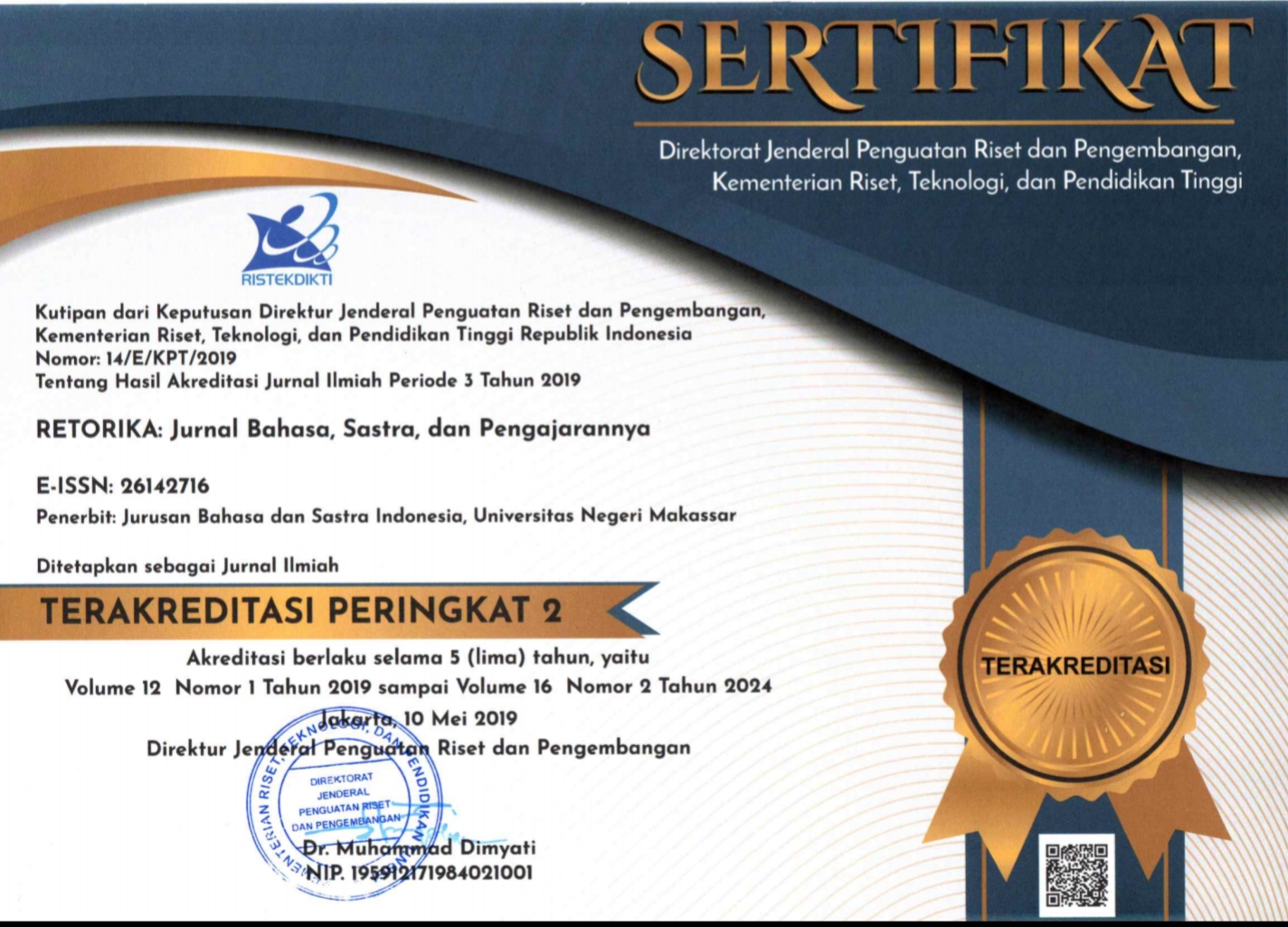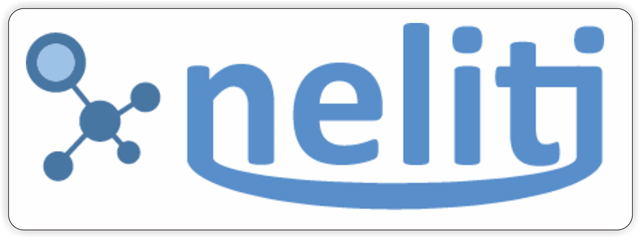Attitude, Solidarity, and Social Change in Indonesian Presidential Debate 2019
(1) Universitas Jember
(2) Universitas Jember
(3) Universitas Jember
(*) Corresponding Author
DOI: https://doi.org/10.26858/retorika.v15i1.16412
Abstract
Keywords
Full Text:
PDFReferences
Amanda, E. (2017). Methaphor, Metonymy, and Voice in Political Debates: A Discourse Analysis Study. Applied Linguistics Research Journal, 1(1), 41–48. https://doi.org/10.14744/alrj.2017.58077
Barlett, T. (2009). Toward Intervention in Positive Discourse Analysis. In C. Coffin, T. A. Lillis, & K. O’Halloran (Eds.), Applied Linguistics and (con)Text: Systemic Functional Linguistics, Critical Discourse Anlaysis and Ethnography. Routledge.
Bayram, F. (2020). Ideology and Political Discourse: A Critical Discourse Analysis of Erdogan’s Political Speech. ARECLS, 7, 23–40. https://pdfs.semanticscholar.org/ca66/57f3aa00fc294598944653897624e2342c7f.pdf
Denscombe, M. (2007). The Good Research Guide for Small-Scale Social Research Projects (Third Edit). Open University Press.
Fairclough, N. (1996). Language and Power (Language in social life series). Longman.
Fayyadh, H. M. (2014). A Discourse Analysis of the Linguistic Strategies in the Debate between Moses and Pharaoh. Anbar University Journal of Language & Literature, 13, 46–64. https://www.researchgate.net/publication/323704171_A_Discourse_Analysis_of_the_Linguistic_Strategies_in_the_Debate_between_Moses_and_Pharaoh
Helmanita, K., & Emzir, Z. R. (2018). Critical Discourse Analysis of Feminism in Nawal Al-Sa’ Adawi’s Mudzakkirat Thobibah. Journal of Education, Teaching and Learning, 3(1), 60–71. https://doi.org/10.26737/jetl.v1i1.465
Li, X. (2016). Attitudinal Analysis of English Song Discourse from the Perspective of Appraisal Theory. Journal of Language Teaching and Research, 7(3), 559–565. https://doi.org/10.17507/jltr.0703.17
Martin, J. R. (2000). Beyond Exchange: Appraisal Systems in English. In S. Huston & G. Thompson (Eds.), Evaluation in Text: Authorial Stance and the Construction of Discourse (pp. 142–174). Oxford University Press.
Martin, J. R. (2004). Positive discourse analysis: Solidarity and Change. Revista Canaria de Estudios Ingleses, 49, 179–202.
Martin, J. R., & White, P. R. R. (2005). The language of evaluation: Appraisal in English. Palgrave Macmillan.
Ngongo, M. (2017). Systemic analysis of text appraisal on students’ theses writing in English. Journal of Scientific Research and Studies, 4(4), 67–72. http://www.modernrespub.org/jsrs/pdf/2017/April/Ngongo.pdf
Palinkas, L. (2013). Purposeful Sampling for Qualitative Data Collection and Analysis in Mixed Method Implementation Research. Springer Science and Businnes Media.
PT. Bahasa Kinerja Utama. (2019). Resume Debat Capres. http://debatcapres.bahasakita.co.id
Qi, L. (2017). Positive Discourse Analysis of Hillary Clinton’s Concession Address. Journal of Literature and Art Studies, 7(10). https://doi.org/10.17265/2159-5836/2017.10.013
Su, T. (2016). Positive Discourse Analysis of Xi Jinping’s Speech at the National University of Singapore under Appraisal Theory. Journal of Language Teaching and Research, 7(4), 796–801. https://doi.org/10.17507/jltr.0704.22
Taiwo, R. (2007). Language, Ideology, and Power Relations in Nigerian Newspaper Headlines. Nebula, 4(1), 218–245.
van Dijk, T.A. (1993). Principles of Critical Discourse Analysis. Discourse & Society, 4(2), 249–283. https://doi.org/10.1177/0957926593004002006
Wu, H. (2013). Appraisal Perspective on Attitudinal Analysis of Public Service Advertising Discourse. English Language and Literature Studies, 3(1), 55–66. https://doi.org/10.5539/ells.v3n1p55
Zhang, X. (2016). Positive Discourse Analysis of Attitude System in Economic News. International Journal of Arts and Commerce, 5(7), 12–17. https://ijac.org.uk/images/frontImages/gallery/Vol._5_No._7/2._12-17.pdf
Article Metrics
Abstract view : 351 times | PDF view : 66 timesRefbacks
- There are currently no refbacks.
Copyright (c) 2022 Chrisdianto Wibowo Kamandoko, Sukarno Sukarno, Ikwan Setiawan

This work is licensed under a Creative Commons Attribution-NonCommercial 4.0 International License.
Published by:
Department of Indonesian Language, Faculty of Languages and Literature, Universitas Negeri Makassar in cooperate with Asosiasi Dosen Bahasa dan Sastra Indonesia (ADOBSI) and Ikatan Program Studi Pendidikan Bahasa dan Sastra Indonesia (IKAPROBSI).
Address: Department of Indonesian Language Office, DG Building Second Floor, UNM Parangtambung, Daeng Tata Raya Street, Makassar, South Sulawesi, Indonesia
 Email: [email protected]
Email: [email protected]

RETORIKA: Jurnal Bahasa, Sastra,dan Pengajarannya is licensed under a Creative Commons Attribution-NonCommercial 4.0 International License.
















